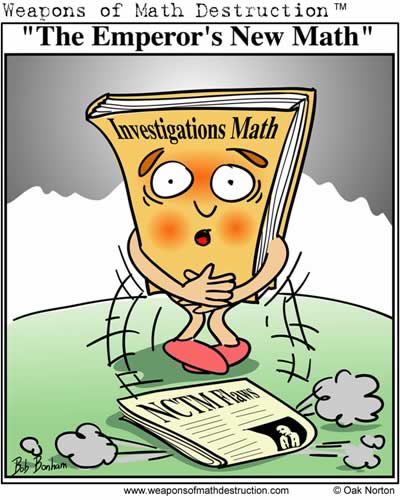|
Updates: 03-11-200903-04-2009 02-16-2009 01-08-2009 12-18-2008 12-13-2008 12-03-2008 11-26-2008 11-15-2008 09-25-2008 09-18-2008 09-03-2008 08-13-2008 07-11-2008 05-28-2008 04-15-2008 03-28-2008 03-22-2008 03-13-2008 03-11-2008 03-06-2008 01-30-2008 01-23-2008 01-16-2008 01-09-2008 12-29-2007 12-12-2007 11-28-2007 11-22-2007 11-16-2007 11-13-2007 11-07-2007 10-31-2007 10-20-2007 10-17-2007 09-26-2007 09-12-2007 08-29-2007 08-23-2007 08-11-2007 07-19-2007 07-11-2007 07-04-2007 06-27-2007 06-20-2007 06-14-2007 06-06-2007 05-30-2007 05-23-2007 05-16-2007 05-09-2007 05-02-2007 04-25-2007 04-18-2007 04-11-2007 04-04-2007 03-28-2007 03-21-2007 03-14-2007 03-08-2007 03-07-2007 03-01-2007 02-28-2007 02-21-2007 02-14-2007 02-07-2007 01-31-2007 01-24-2007 01-17-2007 01-10-2007 01-03-2007 12-20-2006 12-13-2006 12-06-2006 11-22-2006 11-15-2006 11-08-2006 11-01-2006 10-25-2006 10-18-2006 10-11-2006 10-03-2006 09-27-2006 09-20-2006 09-13-2006 09-06-2006 08-30-2006 08-23-2006 08-16-2006 08-09-2006 08-02-2006 07-26-2006 07-12-2006 07-05-2006 06-28-2006 06-21-2006 06-14-2006 05-31-2006 05-22-2006 05-17-2006 05-10-2006 05-03-2006 04-26-2006 04-19-2006 04-12-2006 04-05-2006 03-29-2006 03-22-2006 03-15-2006 03-10-2006 03-08-2006 03-02-2006 02-24-2006 02-15-2006 02-14-2006 02-11-2006 02-09-2006 02-03-2006 01-24-2006 01-19-2006 01-10-2006 01-04-2006 12-20-2005 12-08-2005 12-01-2005 11-15-2005 11-10-2005 11-03-2005 11-02-2005 10-24-2005 10-20-2005 10-16-2005 10-05-2005 09-29-2005 09-22-2005 09-19-2005 09-07-2005 08-11-2005 08-08-2005
|
Weekly Math UpdatesSeptember 20, 2006 Contents:
Hi all, Another week has passed and it never ceases to amaze me how each weekly update always seems to be packed with so much stuff. What you do need to know this week is that with the NCTM caving to the realities of the rest of the world passing us by, there is still a lot of work left to do to ensure we have a solid system in ASD and Utah. I hope those of you in ASD are donating to Tim Osborne's campaign. Next month we will be looking for volunteers to go out to his precinct and stump for him (very natural for me). Here's a link to his address if you missed it last week: http://www.oaknorton.com/mathupdates/20060913.cfm I also just have to comment on how well done the Star Trek edit job was (if you're clueless at this point, follow that link to last week's update). They updated models and effects digitally but made them look almost identical to how they looked in the real episode right down to the swiss brand cheese of exploding ovals for the "proximity phasers." Nice touch. The Romulan plasma torpedo had some nice fluid glow effects. The best thing about watching it was my 3 and 6 year old both saying how much they enjoyed the show. I can now check-off that goal in life. Focal Points Last week we got the news that the Focal Points were "about-facing" the NCTM. Here's a link to them should any of you care to peruse them. I'll preface your adventure with, they're not perfect, but if you think some of them are bad or not clear, you should have seen them before. http://www.nctm.org/focalpoints/ "Miracle Math" by Barry Garelick http://www.hoover.org/publications/ednext/3853357.html More goodness on the Singapore method of teaching math and the worthlessness of NCTM standards.
Former CA Governor's Wilson and Davis Comment on California's Standards http://www.csun.edu/%7Evcmth00m/gov.pdf In a wonderfully bi-partisan effort, two political opposites agree. California has the best standards. This 8 page document starts with the former governor's warning the current "Governator" not to mess with the excellent California math standards.
Then they address numerous assertions being floated in the community. I have picked two very relevant and timely ones. It's certainly refreshing to have some heavy hitters that were in charge of the world's 6th largest economic entity weigh in on the state of math in California.
Kids' Math Help: The Story of Mathino This is one of those really cool stories you run across from time to time. In fact, it's odd because I got emailed the text of this story through the WMD comics site out of the blue this week and when I contacted the author of the article, he had no idea how it got to me. All I can say is, I'm glad it did and I'm trying to obtain the rules to the game this fellow developed. They're not on the web and only in available in printed form but I haven't yet received instructions on how to get the printed form. I'll keep you posted. Anyway, check out this fascinating story about the importance of playing with numbers. http://www.brainy-child.com/article/kid-math-help.shtml Age based tracking versus ability grouping in elementary school mathematics I found this interesting study on line that isn't too long and I think some of you are probably interested in this topic since many of the charter schools do this ability grouping. The article was written by an MSU professor, Mike Robison, in 1998. If you want the whole paper go here: http://www.msu.edu/user/robiso12/Grouping.htm. I have copied the conclusion here for those of you just wanting the story spoiled for you. :)
Media Articles Teacher training faulty, study says Key recommendations from 'Educating School Teachers' (this one's so short I'm just pasting it below)
Can't get enough of me? (ha ha) If over the course of time your brain has become sufficiently accustomed to my brand of humor and politics and you'd like an occasional item that's just for the heck of it, I send out maybe 1-2 other emails a week to friends and family regarding whatever the latest funny thing is I get sent as well as thing that fascinate me in the world of science and computers. If you'd like to get those emails, you can do it by following these directions: Send an email to signmeup@oaknorton.com and on the subject line just put one of the following lines of text depending on if you want to get LDS tidbits forwarded on occasion or just be on the regular list. You can quit anytime you choose. join lds@oaknorton.com Click for LDS popup template. Click for regular list template. Weekly Comic
Archive: http://www.oaknorton.com/weaponsofmathdestruction.cfm Till next week, Oak Norton |
|
| Copyright 2005-06, All Rights Reserved | ||
